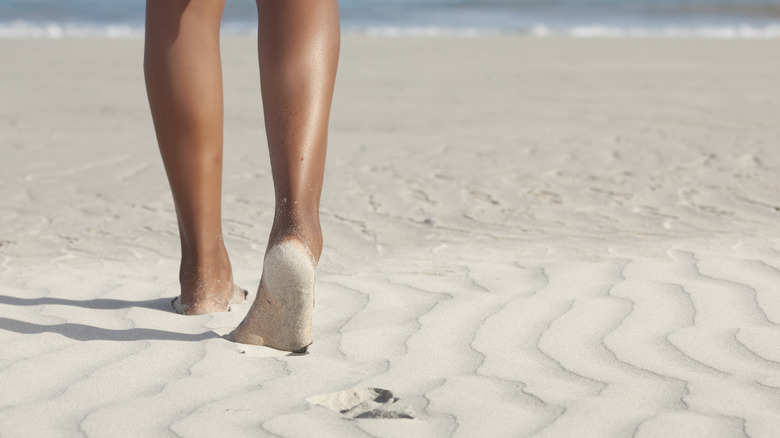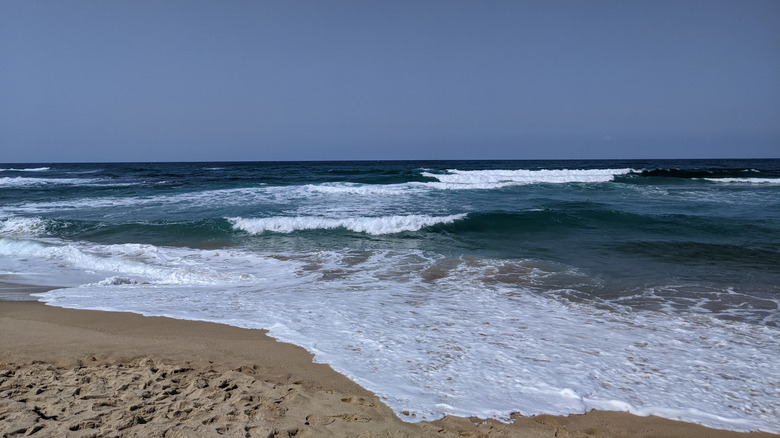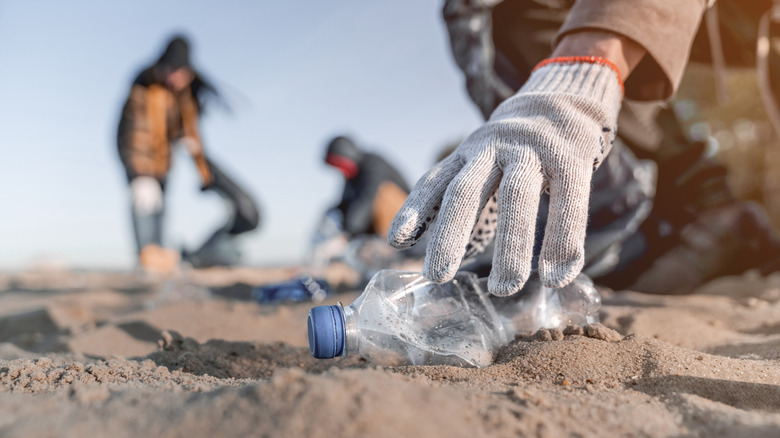The Unexpected Reason You Might Hear Some Beaches 'Squeak'
There are beaches around the world that "squeak" or "sing" when you set foot on them, and this bizarre phenomenon is entirely natural. It all comes down to the type of sand on the beach, which makes a sound when it is squashed together underfoot. This sand is made from grains of white quartz — very round particles all roughly the same size. In scientific terms, they are crystals of silicon dioxide, which is actually used to make glass.
These beaches must have waves strong enough to sort evenly-sized bits of sand along the shore, and it will only sing when it dries. When you step on these little quartz shards, the friction rubs the particles together and causes them to vibrate. This vibration transfers to the surrounding air, making its way to our ears so we hear the squeak. Most beaches don't make this noise because they are usually made up of different elements like rocks and pebbles as well as irregularly shaped sand, which won't create these sounds. If you're intrigued then look out for squeaky beaches when you're planning your summer vacation.
Where are the world's 'squeaky' beaches?
One Insta-worthy beach in Australia has such a reputation for being noisy that it is now named "Squeaky Beach," which can be found in Victoria. This stretch of sand was named the best beach in the country by Tourism Australia's beach expert in 2024. Elsewhere in the country, Whitehaven Beach on the Whitsunday Islands also squeaks. Japan has around 30 singing beaches, and the most famous is Kotohikihama.
There is a singing beach at Manchester-By-The-Sea in Massachusetts, less than an hour's drive from Boston. The dunes of Lake Superior and Lake Michigan are also said to sing. In Canada, Prince Edward Island boasts a squeaky beach at Basin Head. If you find yourself at one of these beaches, the best way to make the sand squeak really loudly is to find somewhere with dry sand and rub your feet in it quickly without lifting them out. This creates enough friction that the sand will make a noise that you'll be able to hear. In order to keep singing, these beaches need to be kept in tip-top condition.
How to look after squeaky beaches
In the age of plastic pollution, it is very important that all beaches are looked after to keep them free of trash. This is especially true of squeaky beaches because they need to be pristine to continue to sing. In Japan, Kotohikihama Beach was the first official "no-smoking" beach and it was ruled that nothing should be built on it to protect it. Money from the nearby car park is used to pay for the beach to be regularly litter-picked.
Pollution events like oil spills or landslides can also affect the squeakiness of beaches as the sand becomes diluted with other elements. However, a Japanese physicist found that purifying the quartz grains again could bring back their sound. This can be done by washing the grains with water, hydrochloric acid, and hydrofluoric acid, and then boiling them. However, as this isn't possible for an entire beach, it shows that Japan has the right idea by keeping their singing beaches clean! Hopefully other countries around the world with squeaky beaches will follow suit.


